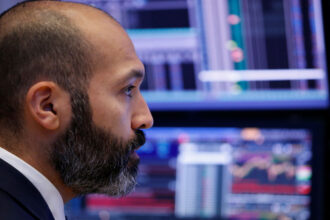© Reuters. File photo: Elon Musk, Chief Executive Officer of SpaceX and Tesla and owner of X, formerly known as Twitter, attends the Viva Technology conference dedicated to innovation and startups at the Porte de Versailles exhibition centre in Paris, France, June
By Emily Rose and Baranjot Kaur
JERUSALEM (Reuters) -Elon Musk said on Saturday that SpaceX’s Starlink will support communication links in Gaza with “internationally recognized aid organizations”, prompting Israel’s communication minister to say Israel would fight the move.
Musk said in a post on social media platform X that it was not clear who has authority for ground links in Gaza, but we do know that “no terminal has requested a connection in that area”.
A telephone and internet blackout isolated people in the Gaza Strip from the world and from each other on Saturday, with calls to loved ones, ambulances or colleagues elsewhere all but impossible as Israel widened its air and ground assault.
International humanitarian organizations said the blackout, which began late on Friday, was worsening an already desperate situation by impeding life-saving operations and preventing contact with their staff on the ground.
SpaceX did not immediately respond to Reuters’ request for comment on how it would ensure any Starlink connection was used by aid organizations and not by the Palestinian militant group Hamas, which runs the Gaza Strip.
Responding to Musk’s post on X, Israel’s communication minister Shlomo Karhi said Israel “will use all means at its disposal to fight this.”
“HAMAS will use it for terrorist activities,” Karhi wrote. “Perhaps Musk would be willing to condition it with the release of our abducted babies, sons, daughters, elderly people. All of them! By then, my office will cut any ties with starlink.”
Following Russia’s February 2022 invasion of Ukraine, Starlink satellites were reported to have been critical to maintaining internet connectivity in some areas despite attempted Russian jamming.
Since then, Musk has said he declined to extend coverage over Russian-occupied Crimea, refusing to allow his satellites to be used for Ukrainian attacks on Russian forces there.
Read the full article here










